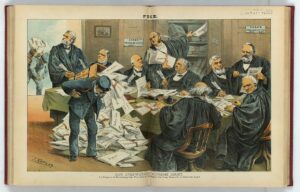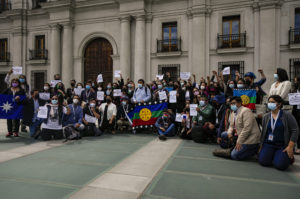Wireless Cellphone Tracking Ruled Unconstitutional
A federal appeals court decided Wednesday that investigators must obtain a search warrant from a judge to acquire cellphone tracking data that is often used as evidence to show suspects were in the vicinity of where a crime occurred.
A federal appeals court decided Wednesday that investigators must obtain a search warrant from a judge to acquire cellphone tracking data that is often used as evidence to show suspects were in the vicinity of where a crime occurred.
The Associated Press reports:
A three-judge panel of the 11th U.S. Circuit Court of Appeals determined people have an expectation of privacy in their movements and that the cell tower data was part of that. As such, obtaining the records without a search warrant is a violation of the Fourth Amendment’s ban on unreasonable searches and seizures, the judges ruled.
“While committing a crime is certainly not within a legitimate expectation of privacy, if the cell site location data could place him near those scenes, it could place him near any other scene,” the judges wrote. “There is a reasonable privacy interest in being near the home of a lover, or a dispensary of medication, or a place of worship, or a house of ill repute.”
The ruling does not block investigators from obtaining the records — which show which calls are routed through specific towers — but simply requires a higher legal showing of probable cause to obtain a search warrant rather than a less-strict court order.
ACLU attorney Nathan Freed Wessler, who argued the case, said, “The court soundly repudiates the government’s argument that merely by using a cellphone, people somehow surrender their privacy rights.”
Read more here.
— Posted by Alexander Reed Kelly.
Your support matters…Independent journalism is under threat and overshadowed by heavily funded mainstream media.
You can help level the playing field. Become a member.
Your tax-deductible contribution keeps us digging beneath the headlines to give you thought-provoking, investigative reporting and analysis that unearths what's really happening- without compromise.
Give today to support our courageous, independent journalists.






You need to be a supporter to comment.
There are currently no responses to this article.
Be the first to respond.